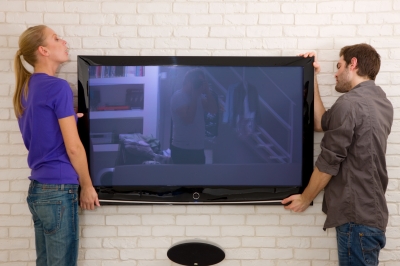Is Renting or Leasing Household Appliances a Good Option?
If you are in need of a new household appliance like a new stove, refrigerator, or washing machine, or you want a new computer, household furniture or large TV, but do not have the funds, you may be tempted to consider leasing or renting these goods. These leasing and renting options typically come with low monthly or fortnightly payments that must be paid until the product plus interest is paid for in full, or the lease period ends.
Oftentimes, this sounds like a good idea at first because you can obtain the things you want at a rate you can afford. However, it is important that you take a closer look at these types of deals and examine the real costs you will have to pay, before entering into this type of agreement. Below are some valuable information about leasing and renting options and some alternatives that may offer a better solution.
Difference between Leasing and Rent-to-Own
Many consumers are confused about the difference between leasing a product and renting-to-own a product. Both options require you to make regular payments, however, when you lease a product you never actually take ownership of the product. For example, if your lease a new TV for a period of two years, you will need to make regular payments at set intervals during the two-year lease. However, at the end of the lease the TV is not yours because it still belongs to the company you leased it from.
With the example listed above, you would have four options at the end of the two-year lease, including keeping the TV and renewing the lease, return the TV to the leasing company, work a deal out with the company to purchase the TV at an additional cost, or trade the TV for a newer model and start another lease.
On the other hand, when you enter into a rent-to-own agreement, you are agreeing to make regular payments for the duration of the contract. When the last payment is paid in full, you are the rightful owner of the property.
Hidden Fees to Watch Out For
The problem with most rent-to-own and leasing contracts is that they include numerous hidden fees. First of all, you will be paying a very high interest rate that will force you to pay a lot more money in payments than the product is worth. Many of these types of contracts also come with account-keeping fees and sometimes an establishment fees. You are also likely to be charged additional fees if you make your payment late, and you may be penalised for paying off the contract early. In addition, if the product you are renting or leasing is damaged or stolen, you may be responsible for the damages depending on your contract.
Safer Alternatives
As you can see, these fees can really start to add up over time and before long you will be spending much more than it is worth. There are several safer alternatives that will help you get the goods you need without entering into a costly contract.
• Lay By. Many companies offer a special lay by service that allows you to make payment towards the purchase of a product. The company may charge a nominal fee, but they will not charge interest or late fees. However, you will not be able to take the item home with you until you have made your last payment.
• Save Up Money. You can also save up the money slowly over time until you have saved enough to make the purchase. If you are a low-income earner, you can consider setting up a Saver Plus or an AddsUp saving plan. With these plans, once you reach a certain goal, the government will match your funds up to $500. This may help you save for what you want twice as fast.
• Take Out a Low-Rate Loan. If the item you need to purchase is a necessity, such as a refrigerator or stove, you may qualify for a low or no-interest loan through the government. The NILS (No-Interest Loans Scheme) provides no-interest loans of up to $1,200 and the StepUp program offer low-interest loans up to $3,000.
No matter what options you choose, be sure to always read the terms and conditions of the contract. Pay close attention to any extra fees you need to pay. Also, double check your household budget and make sure you will have enough money to make the monthly or fortnightly payments. The last thing you want to do is enter into a contract you cannot afford.
Image by Ambro






No Comment